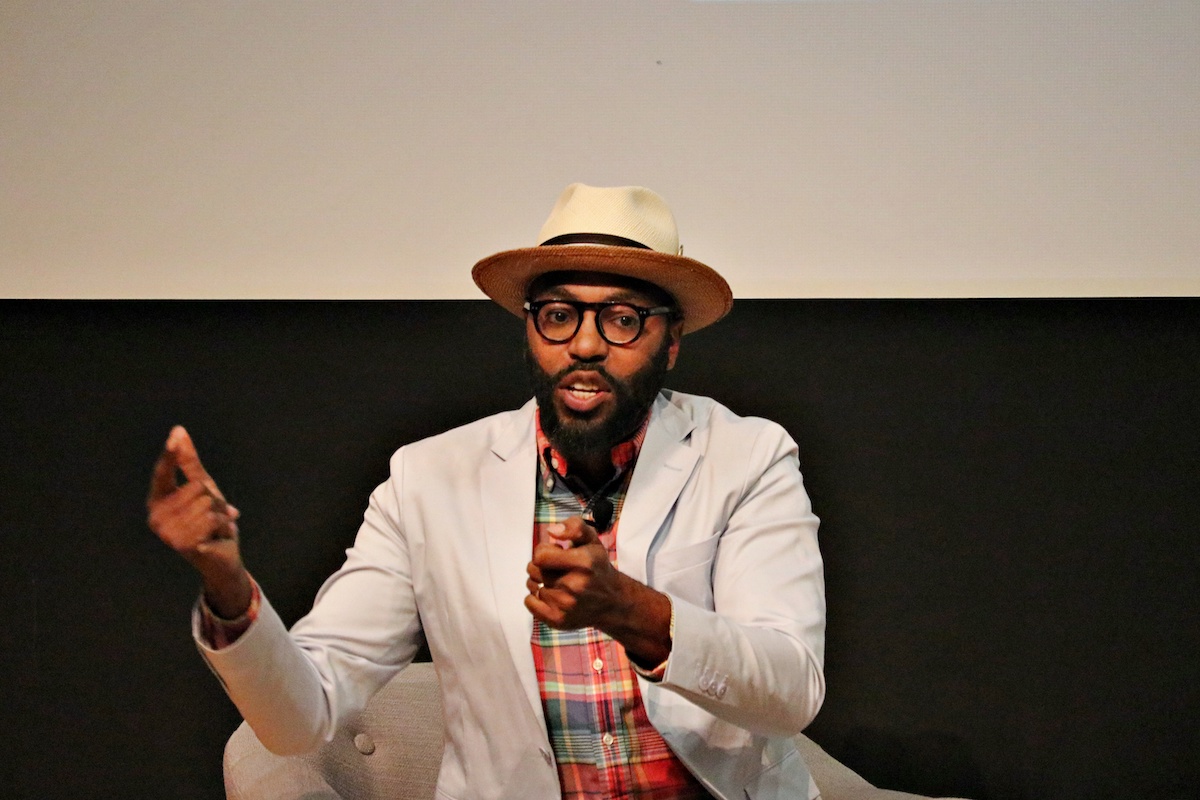Nearly 20 years ago, Christopher Emdin was a novice teacher who practiced scowling in front of a mirror so that he could maintain order and quiet in his classroom. He was only practicing what others preached: One day, when the sound of sirens persisted outside the school for far longer than usual, the principal’s office called to tell him that two planes had hit the World Trade Center, and that he must keep his students working and not tell them what was going on.
“I ignored the chaos of the world beyond the classroom because I believed it was my job to just keep on teaching,” writes Emdin, Associate Professor of Science Education at Teachers College, in an essay just published in The Atlantic (part of the magazine’s “On Teaching” project). “Looking back now, I realize I was not actually teaching at all.”
[Read the full text of Emdin’s essay, “Teaching Isn’t About Managing Behavior: It’s About Reaching Students Where They Really Are.”]
I ignored the chaos of the world beyond the classroom because I believed it was my job to just keep on teaching. Looking back now, I realize I was not actually teaching at all.
Today, when “the coronavirus has emerged as another siren, tearing through our collective sense of normal,” Emdin, who has become globally recognized for championing the use of hip hop to teach science, calls for teachers to employ a “reality pedagogy” that “involves connecting academic content to what’s happening in the world that affects students” and “making sure that their lives and backgrounds are reflected in the curriculum and in classroom conversations.”

TEACHING THROUGH PROTEST Emdin argues that teachers must “disrupt teaching norms that harm vulnerable students.” (Photo: TC Archives)
Invoking the specter of Derek Chauvin, the Minneapolis policeman who killed George Floyd, he argues that that to do anything less is a form of racism that amounts to placing “a metaphorical knee on the necks of young people.”
Emdin calls for a “reality pedagogy” that “involves connecting academic content to what’s happening in the world that affects students” and “making sure that their lives and backgrounds are reflected in the curriculum and in classroom conversations.”
Emdin says that he himself was guilty of doing just that in the wake of 9/11, when he failed to admonish students who called their Muslim peers “terrorists.”
“I didn’t make space for my Muslim students to heal from being targeted,” he writes. “But if I had started that dialogue, I would have learned a lot from them about how I could have been a better teacher.”
Indeed, Emdin says, “the best teachers use their pedagogy as protest” to “disrupt teaching norms that harm vulnerable students.” They also view students as “co-teachers” who “can see what teachers have been trained to ignore.”
“If teachers want to respond to racism as they’ve responded to the coronavirus pandemic,” Emdin concludes, “they can start here—in their own classrooms.”
[Read a story about the call by TC alumna Jamila Lyiscott, at TC’s Reimagining Education Summer Institute, for a “pandemic pedagogy.”]
